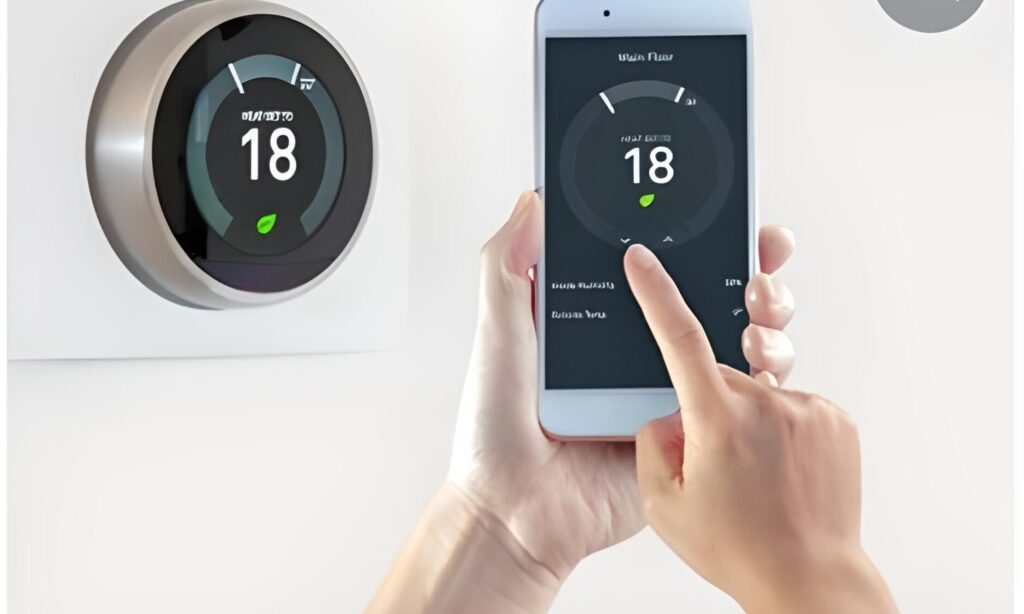A smart thermostat is a device that allows you to control the temperature in your home remotely using a smartphone app or other internet-connected device. This can help you save money on your energy bills by allowing you to set specific heating and cooling schedules and adjust the temperature when you’re away from home.
Table of Contents
Do smart thermostats really save money?
Yes, smart thermostats can help you save money on your energy bills by allowing you to precisely control the temperature in your home. For example, you can set a schedule to lower the temperature when you’re away or asleep, and raise it again when you’re on your way home or waking up.
This can help prevent unnecessary heating or cooling, which can reduce your energy usage and save you money. Additionally, many smart thermostats have features that can learn your heating and cooling preferences and automatically adjust the temperature to save energy.
However, the exact amount of money you can save with a smart thermostat will depend on several factors, such as the size of your home, your local climate, and your personal heating and cooling habits. It’s important to do your own research and compare different smart thermostat models to find the one that best fits your needs and budget.
How do I set my smart thermostat to save energy?
To set your smart thermostat to save money, you’ll first need to download and install the thermostat’s most recent updated app on your smartphone. Once you’ve done that, you will be able to save energy using the following smart features.
Allowing you to set a schedule:
Setting a schedule on your smart thermostat can help you save energy and money by preventing unnecessary heating or cooling. For example, if you know that you’re typically away from home during the day, you can set the thermostat to lower the temperature while you’re away and raise it again when you’re on your way home. This can help prevent your heating and cooling system from running unnecessarily while you’re away, which can save energy and money.
Additionally, you can set different schedules for different times of the day, such as lower temperatures at night when you’re asleep, and higher temperatures in the morning when you’re waking up. By setting a schedule on your smart thermostat, you can save energy and money by ensuring that your heating and cooling system is only running when it’s needed.
Allowing you to adjust the temperature remotely:
Many smart thermostats can be controlled using a smartphone app or other internet-connected device. This means you can turn down the heat or air conditioning when you’re away from home, which can save energy. One of the main benefits of a smart thermostat is that it allows you to control the temperature in your home remotely using a smartphone app or other internet-connected device.
This means you can monitor and adjust your heating and cooling settings from anywhere, whether you’re at home, at work, or on vacation. For example, if you forget to turn down the heat before leaving for work, you can use your smartphone to turn it off remotely, which can save energy and money.
It learns your heating and cooling preferences
Some smart thermostats have self-learning technology, which means they can learn your heating and cooling preferences and automatically adjust the temperature to save energy. This can be especially useful if you have a complex or irregular schedule, or if you don’t want to spend time manually adjusting the thermostat.
The self-learning technology can track your usage patterns and automatically adjust the temperature to match your needs, without you having to do anything. This can help you save energy and money, and ensure that your home is always at the right temperature.
It keeps tracking your energy usage
Many smart thermostats have features that track your energy usage, so you can see how much energy you’re using and find ways to save. For example, some smart thermostats provide information about your energy usage over time, so you can see patterns and trends in your heating and cooling habits.
This can help you identify areas where you’re using more energy than necessary, and make adjustments to your heating and cooling schedule to save money. Additionally, some smart thermostats provide recommendations for how to save energy based on your usage data, so you can get personalized advice on how to reduce your energy consumption. Overall, the ability to track your energy usage can be a valuable feature of a smart thermostat, as it can help you save money on your energy bills.
Are smart thermostats really worth it?
It, in fact, will depend on your individual situation and needs. On one hand, smart thermostats can provide several benefits, such as the ability to control your home’s temperature remotely, set heating and cooling schedules, and save energy.
If you’re looking to save money on your energy bills and want the convenience of being able to control your home’s temperature remotely, a smart thermostat may be worth considering. However, if you’re happy with your current thermostat and don’t need the added features, it may not be worth the investment.
So, what are the disadvantages of a smart thermostat?
Cost: Smart thermostats can be more expensive than traditional thermostats, and you may need to pay for a subscription or other fees to use some of their advanced features. This can make them less affordable for some people.
Compatibility: Not all smart thermostats are compatible with all types of heating and cooling systems, so you may need to do some research to find one that works for your home. This can be time-consuming and frustrating.
Dependence on technology: Smart thermostats rely on technology, such as a smartphone app or internet connection, to function properly. If your phone battery dies or your internet connection goes down, you may not be able to control your thermostat. This can be inconvenient and may make it difficult to adjust your heating and cooling settings when you need to.
Privacy concerns: Some people may be concerned about the privacy implications of using a smart thermostat, as it involves sharing personal information and data with a third party. This can be a concern for those who value their privacy and want to keep their personal data private.
Overall, while there are a few disadvantages to using a smart thermostat, it’s important to consider many potential benefits that outweigh the drawbacks of using smart thermostats.








